On the international front for organic, there are a number of resources in addition to the Organic Export Promotion Program administered by the Organic Trade Association that can provide helpful assistance. Here is a sampling of useful links.
Codex Alimentarius
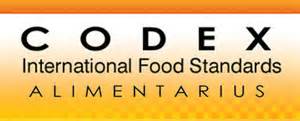 Codex Alimentarius, a collection of internationally adopted food standards, guidelines, codes of practice and other recommendations, is the global reference point for consumers, food producers and processors, national food control agencies and the international food trade. It is designed to protect public health and fair practices in the food trade. It includes “Guidelines for the Production, Processing, Labelling and Marketing of Organically Produced Foods,” first adopted in 1999 with subsequent revisions and amendments over the years. These can be viewed online on the Codex site.
Codex Alimentarius, a collection of internationally adopted food standards, guidelines, codes of practice and other recommendations, is the global reference point for consumers, food producers and processors, national food control agencies and the international food trade. It is designed to protect public health and fair practices in the food trade. It includes “Guidelines for the Production, Processing, Labelling and Marketing of Organically Produced Foods,” first adopted in 1999 with subsequent revisions and amendments over the years. These can be viewed online on the Codex site.
Codex is the result of work by the Codex Alimentarius Commission, an intergovernmental body with over 180 members operating within the framework of the Joint Food Standards Programme established by the Food and Agriculture Organization (FAO) of the United Nations and the World Health Organization (WHO).
The Global Organic Textile Standard
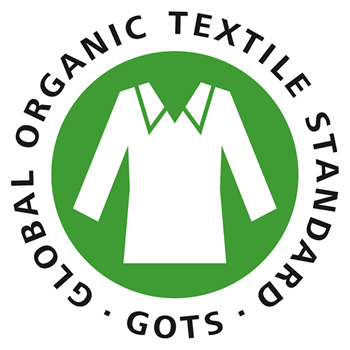 The Global Organic Textile Standard (GOTS) is the world’s leading processing standard for textiles made from certified organic fibers. GOTS was first approved in 2006 by the International Working Group made up of the Organic Trade Association (OTA), the Japan Organic Cotton Association, International Association Natural Textile Industry (Germany), and the Soil Association (UK). There were 3,085 facilities certified to GOTS by the end of 2013. Core provisions include 70 percent minimum content of certified organic fibers, and bans on genetically modified organisms (GMOs), nanotechnology and carcinogenic substances.
The Global Organic Textile Standard (GOTS) is the world’s leading processing standard for textiles made from certified organic fibers. GOTS was first approved in 2006 by the International Working Group made up of the Organic Trade Association (OTA), the Japan Organic Cotton Association, International Association Natural Textile Industry (Germany), and the Soil Association (UK). There were 3,085 facilities certified to GOTS by the end of 2013. Core provisions include 70 percent minimum content of certified organic fibers, and bans on genetically modified organisms (GMOs), nanotechnology and carcinogenic substances.
International Federation of Organic Agriculture Movements
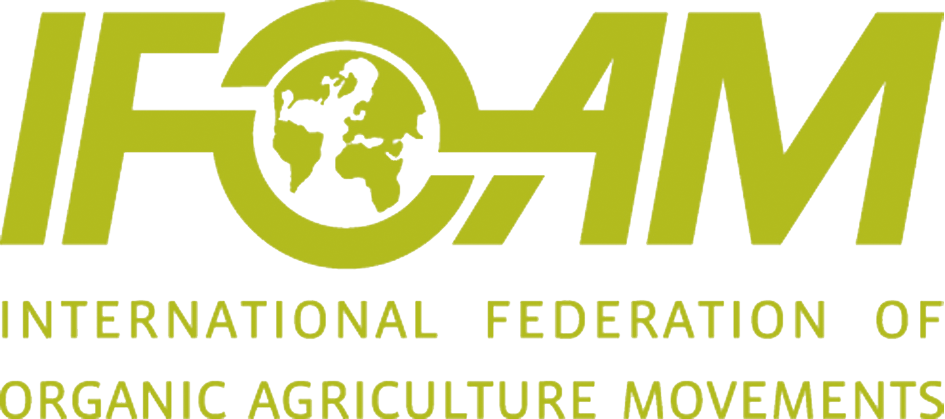 Since 1972, IFOAM has served as the only international umbrella organization of the all stakeholders contributing to the organic vision. This allows IFOAM to unite, lead and assist the organic movement - all IFOAM Affiliates - in its full diversity, while providing a common voice on relevant organic issues. IFOAM implements the will of its broad-based constituency, with Affiliates in more than 100 countries and is governed by a World Board originating from all continents. The IFOAM Action Network comprises self-organized IFOAM regional and sector groups and daughter organizations. Its vision is worldwide adoption of ecologically, socially and economically sound systems based on the Principles of Organic Agriculture. IFOAM acts in a fair, inclusive and participatory manner and highly appreciates the diversity of the Organic Agriculture movement. The Organic Trade Association is a member of IFOAM.
Since 1972, IFOAM has served as the only international umbrella organization of the all stakeholders contributing to the organic vision. This allows IFOAM to unite, lead and assist the organic movement - all IFOAM Affiliates - in its full diversity, while providing a common voice on relevant organic issues. IFOAM implements the will of its broad-based constituency, with Affiliates in more than 100 countries and is governed by a World Board originating from all continents. The IFOAM Action Network comprises self-organized IFOAM regional and sector groups and daughter organizations. Its vision is worldwide adoption of ecologically, socially and economically sound systems based on the Principles of Organic Agriculture. IFOAM acts in a fair, inclusive and participatory manner and highly appreciates the diversity of the Organic Agriculture movement. The Organic Trade Association is a member of IFOAM.
International Organic Inspectors Association
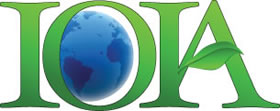 The International Organic Inspectors Association (IOIA) is the professional organization of organic inspectors. It offers training and networking worldwide for crop, livestock, and processing inspectors. It was founded in 1991 by organic inspectors who recognized the need for uniform inspector processes and protocols to build inspector skills and promote public confidence. Incorporated in the United States as a non-profit, IOIA operates globally with nearly 250 inspector members in more than a dozen countries.
The International Organic Inspectors Association (IOIA) is the professional organization of organic inspectors. It offers training and networking worldwide for crop, livestock, and processing inspectors. It was founded in 1991 by organic inspectors who recognized the need for uniform inspector processes and protocols to build inspector skills and promote public confidence. Incorporated in the United States as a non-profit, IOIA operates globally with nearly 250 inspector members in more than a dozen countries.
International Society of Organic Agriculture Research
 The International Society of Organic Agriculture Research (ISOFAR) promotes and supports research in all areas of organic agriculture by facilitating global co-operation in research, methodological development, education and knowledge exchange. It supports individual researchers through membership services, publications and events, and integrating stakeholders in the research process. It is a strategic partner of IFOAM.
The International Society of Organic Agriculture Research (ISOFAR) promotes and supports research in all areas of organic agriculture by facilitating global co-operation in research, methodological development, education and knowledge exchange. It supports individual researchers through membership services, publications and events, and integrating stakeholders in the research process. It is a strategic partner of IFOAM.
Research Institute of Organic Agriculture
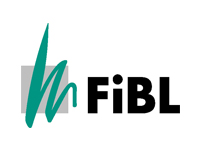 Research Institute of Organic Agriculture (FiBL) is an independent, non-profit, research institute with the aim of advancing cutting-edge science in the field of organic agriculture. FiBL’s research team works together with farmers to develop innovative and cost-effective solutions to boost agricultural productivity while never losing sight of environmental, health and socio-economic impacts. Alongside practical research, FiBL gives high priority to transferring knowledge into agricultural practice through advisory work, training and conferences. FiBL has offices in Switzerland, Germany and Austria and numerous projects and initiatives in Europe, Asia, Latin America and Africa.
Research Institute of Organic Agriculture (FiBL) is an independent, non-profit, research institute with the aim of advancing cutting-edge science in the field of organic agriculture. FiBL’s research team works together with farmers to develop innovative and cost-effective solutions to boost agricultural productivity while never losing sight of environmental, health and socio-economic impacts. Alongside practical research, FiBL gives high priority to transferring knowledge into agricultural practice through advisory work, training and conferences. FiBL has offices in Switzerland, Germany and Austria and numerous projects and initiatives in Europe, Asia, Latin America and Africa.
The United States Sustainability Alliance Global Broad-based Initiative Project
 The Global Broad-based Initiative (GBI) is a consortium of U.S. agricultural and fishery export promotion groups working under the umbrella name of the U.S. Sustainability Alliance (USSA) jointly to boost awareness of target audiences in Europe (importers, buyers, distributors and major retail chains) about the sustainable production practices and validation methods already in place through laws and regulations overseen by USDA, the National Oceanic and Atmospheric Administration (NOAA) and other agencies.
The Global Broad-based Initiative (GBI) is a consortium of U.S. agricultural and fishery export promotion groups working under the umbrella name of the U.S. Sustainability Alliance (USSA) jointly to boost awareness of target audiences in Europe (importers, buyers, distributors and major retail chains) about the sustainable production practices and validation methods already in place through laws and regulations overseen by USDA, the National Oceanic and Atmospheric Administration (NOAA) and other agencies.Worldwide Opportunities on Organic Farms
 WWOOF organizations offer the chance to volunteer and live on organic farms or host such volunteers in exchange for room and board. The purpose of the Federation of WWOOF Organizations is to unite, promote, protect and support the WWOOF movement around the world. It is a non-profit organization, and its member organizations work together in the spirit of an international federation with democratic principles. For more than forty years WWOOF has spread from country to with each new group being independently owned and operated, yet being part of a larger network.
WWOOF organizations offer the chance to volunteer and live on organic farms or host such volunteers in exchange for room and board. The purpose of the Federation of WWOOF Organizations is to unite, promote, protect and support the WWOOF movement around the world. It is a non-profit organization, and its member organizations work together in the spirit of an international federation with democratic principles. For more than forty years WWOOF has spread from country to with each new group being independently owned and operated, yet being part of a larger network.
